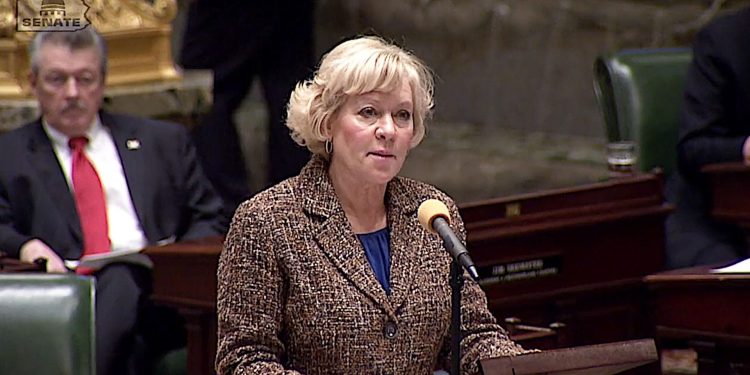By Victor Skinner | The Center Square contributor
(The Center Square) – A Pennsylvania senator is proposing a sales tax holiday for this summer in an attempt to offer a reprieve from accelerating inflation, but policy experts contend it is a bad idea.
Sen. Lisa Boscola, D-Bethlehem, issued a memorandum to her colleagues, calling for co-sponsors on forthcoming legislation to provide a two-month sales tax holiday. She cited inflation and a budget surplus as the motivation.
“Everyone is hurting from the effects of inflation. It was reported that in January of 2022, the annual inflation rate in the U.S. accelerated to 7.5%. This is the highest since February of 1982,” Boscola wrote. “The tax holiday is intended to help provide some temporary relief to everyone. Whether it is working families, recent college graduates or retirees, price increases have negatively impacted everyone’s bottom line.
“I believe we can do something to help Pennsylvanians,” she wrote.
Boscola cited a $2 billion surplus in the 2021-22 budget and projections from Gov. Tom Wolf’s administration for a similar surplus next year. She suggested spreading the two-month tax holiday over the two fiscal years.
“By suspending the sales tax in Pennsylvania during the months of June and July of 2022 we can spread the impact over two budgets,” she wrote. “The June suspension would influence 2021-22 budget projections and the July suspension would impact the 2022-23 budget.”
The memo clarifies the “legislation would not affect the 1% and 2% local sales taxes that Allegheny and Philadelphia County currently have.”
Boscola did not return a message from The Center Square seeking comment on her proposal.
Nathan Benefield, senior vice president of the Pennsylvania policy group the Commonwealth Foundation, cautioned that while the tax holiday is “very populist in its appeal … any effect is very temporary.”
Benefield predicted people who can afford to make big purchases in a short amount of time likely would benefit the most.
“It really is not necessarily a good policy for lowering the tax burden on all families,” he said. “It’s just a temporary reprieve, so I don’t think it will have the effect they think it will.”
Benefield noted revenue projections from the Wolf administration are significantly higher than the Independent Fiscal Office, which predicts a deficit from the governor’s proposed budget in coming years. He believes politics likely is the bigger driving force behind the proposal.
“They’re hoping it will sound good in November, but in terms of sound policy, it’s really not that good,” he said. “It’s a short-term thing that puts us in a bad spot for next year.”
Lawmakers in the General Assembly are reviewing Wolf’s proposed budget with a series of hearings in the House and Senate appropriations committees.
The full House is scheduled to reconvene March 21, and the Senate on March 28.




